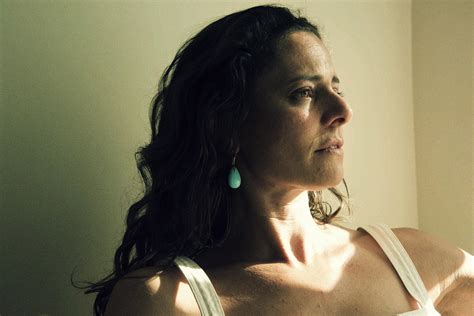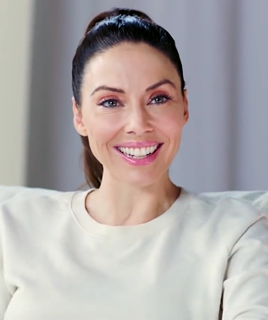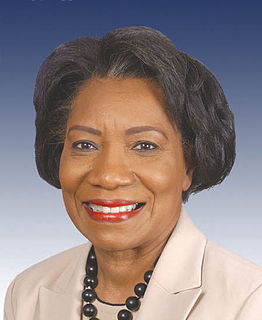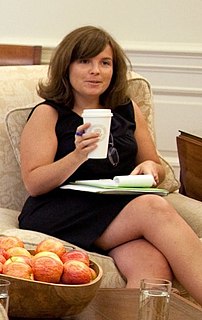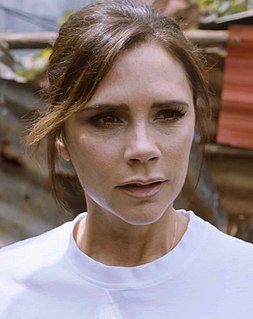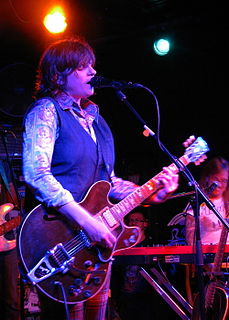A Quote by Ariel Levy
I think it would be difficult to argue that I'm a net-negative for womankind. I've tried pretty hard to bring in unusual female voices and perspectives. Not just young women and not just white women, either. I don't know that I'm the best target for improvement. I don't know that I'm the problem.
Related Quotes
It turns out that a lot of women just have a problem with women in power. You know, this whole sisterhood, this whole let's go march for women's rights and, you know, just constantly talking about what women look like or what they wear, or making fun of their choices or presuming that they're not as powerful as the men around. This presumptive negativity about women in power I think is very unfortunate, because let's just try to access that and have a conversation about it, rather than a confrontation about it.
Here are examples of real women who have done real things: good, bad, and in between. We're expanding not just the definition of the female or feminine hero, but also villains and more complex, nuanced female characters. Too often I hear men say, "I don't know how to write women." Here you go, here are five incredible women you can use to inspire your own stories.
As we women know, there are so many other hurdles that we have to cross that I would love it if we could stop having the race conversation so that we can get women further on. You know, a female president now that we have an African American president. Maybe we can get an Asian female, a gay person?
I think empowerment of women is exactly what's happening now, with women being portrayed as human beings, and not just black and white. Men can be the anti-hero all the time, and it's cool, but when women are, they're twisted or messed up or something is wrong with them. I think it's just about portraying women in the world as equals to men, and vice versa.
I always go with the dictionary definition of feminism, which is just social, political and economic equality for women. And that's kind of a strategic thing on my part, because I think that it's the hardest definition to argue with. You know, who doesn't want that? Everyone wants equality for women.
I think that if you look at all of the books that have ever been written about people working in the White House, they're sort of the opposite of my book. And I think that so many people want to write a book that sort of memorializes their place in history. And I wanted to write something for all of the women who are like me. I grew up in upstate New York, I graduated high school with 70 other people and didn't ever know that anything like this would have really been an option for me. So I wanted other young women — and men — to know that just being you is plenty.
When I was growing up in rural Alabama, as a young child, about 50 miles from Montgomery, and we would visit the little town of Troy, or visit Montgomery or Tuskegee, I would see the signs that said, "WHITE MEN - COLORED MEN," "WHITE WOMEN - COLORED WOMEN."And I would come home and say to my mother and father and my grandparents, "Why?" "Why this?" "Why that?" And they would just tell me, "That's just the way it is! Don't get in the way. Don't cause trouble."
In drawing attention to the physical characteristics of women leaders, they can be dismissed as either too pretty or too ugly. The net effect is to prevent women's identification with the issues. If the public women is stigmatized as too 'pretty,' she's a threat, a rival--or simply not serious; if derided as too 'ugly,' one risks tarring oneself with the same brush by identifying oneself with her agenda.
